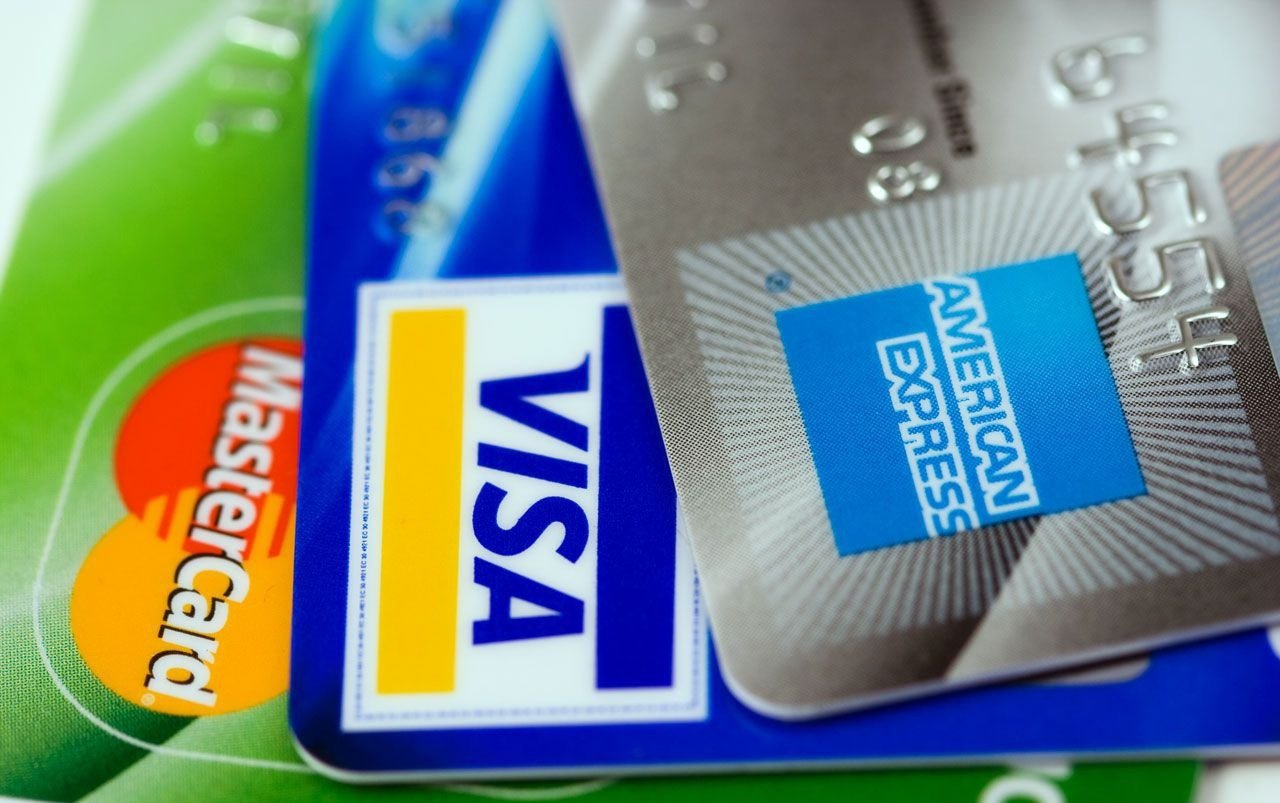The mighty credit card, that magical plastic talisman that turns dreams into debt with just a swipe! Choosing the perfect credit card is a bit like picking a doughnut. You want the one that’s sweet and satisfying, not the one that’s going to make you feel sick an hour later. So, let’s dive into the scrumptious world of credit, sprinkles and all, and consider the factors that will either make your financial life a piece of cake or turn it into a never-ending episode of “Broke and Buying”.
1. Interest Rates: The Root of All Evil (and Debt)
Let’s start with the big one: interest rates. Now, we all know that credit card companies are just generous souls looking to lend us money out of the goodness of their hearts, right? Wrong. Those rates are how they make the big bucks. So, if you’re someone who enjoys giving away extra money for no reason – by all means, ignore this part. For everyone else, pay attention! APR (Annual Percentage Rate) is the little gremlin that will either nibble away at your finances or take huge Godzilla-sized bites. Look for low APRs if you enjoy keeping your money, or high ones if you prefer living on the edge of a financial volcano.
2. Credit Limit: Your Very Own Financial Leash
Credit limits are fun, aren’t they? It’s like your lender is saying, “Here’s how much we trust you not to mess up.” It’s a number that can give you a false sense of wealth. High credit limits might make you feel like a rockstar, but remember, with great purchasing power comes great responsibility – and by responsibility, I mean potential debt. Choose wisely, my friend. Aim for a credit limit that matches your spending habits and income, not your dreams of buying a yacht.
3. Rewards: The Carrot Dangling in Front of You
Rewards programs are the dangling carrots that entice us to bite. They’re the financial world’s version of “Who’s a good spender? You are!” Whether it’s cashback, points, or miles, we all love a good pat on the back for spending money. But don’t let shiny rewards blind you to the possible pitfalls, like spending more than you should just to get that free toaster or those extra airline miles that you’ll likely never use. Make sure the rewards are something you’ll actually benefit from, unless you’re into collecting points like they’re rare stamps.
4. Annual Fees: The Membership to the Club Nobody Wants to Join
And who could forget about those delightful annual fees? They’re like a club membership but instead of getting access to a cool place to hang out, you just get to keep using the credit card. What a deal, huh? If you’re getting enough perks, an annual fee might be worth it. Otherwise, look for a card without an annual fee, because who needs to pay extra for the privilege of spending their own money?
5. Introductory Offers: The Honeymoon Phase
Then there are those seductive introductory offers that are oh-so-tempting. Zero percent APR for the first year? Sign me up! But remember, much like a honeymoon, this phase ends. And when it does, you might be left with the financial equivalent of a partner who suddenly can’t remember how to pick up their dirty socks. Understand the terms and have a plan for when the introductory period ends, or you might find your finances filing for divorce.
6. Accepted Everywhere: Don’t Be That Guy at the Checkout
Imagine this: You’re at the checkout counter with a cart full of groceries. You swipe your card only to hear the cashier say, “Sorry, we don’t accept that card here.” Embarrassing, right? Some credit cards are like that one friend who can’t go anywhere because they’re wearing flip-flops. You want a credit card that’s more like the friend who’s ready for any adventure. Make sure your card is widely accepted so you don’t have to do the walk of shame out of the store, leaving your groceries behind.
7. Security Features: Because Financial Ninjas Need Protection Too
In the dark corners of the web, identity thieves lurk, ready to pounce on your credit card information. The best credit cards come with a black belt in security features: fraud monitoring, zero liability for unauthorized charges, and the ability to freeze your account faster than you can say “identity theft is no joke.” Make sure your card is equipped with the latest security tech because, let’s be honest, you’re not exactly a human firewall.
8. Customer Service: Your Financial 911
Customer service is the unsung hero of the credit card world. When things go south, like you’ve been charged for the complete works of Shakespeare in Klingon, and you didn’t even know you needed them, you’ll want top-notch customer service. A good credit card provider should be as responsive as a first date who actually likes you. They should answer calls quicker than a parent responding to a toddler’s silence (because we all know that’s when the real trouble happens). 24/7 customer service is the gold standard, because financial mishaps don’t respect office hours. They’re like cats; they do whatever they want, whenever they want.
When you’re stuck in a dingy motel at 2 AM because your card’s been declined, and you’re pretty sure the front desk clerk is a vampire, that’s when you’ll bless the customer service gods. Make sure your credit card company has a robust customer support system – it’s like having a financial Batman on speed dial.
9. Compatibility with Your Soul (and Wallet)
Finding a credit card is a match-making process. You’ve got to choose a card that’s compatible with your lifestyle, spending habits, and financial goals. It’s a bit like dating – go for the flashy one with lots of bling, and you might end up with glittery heartbreak. Opt for the one that’s solid, reliable, and gives you a good night’s sleep (instead of nightmares about your credit score plummeting to the depths of Hades), and you’re in for a healthy, long-term relationship.
The Bottom Line (Literally)
Selecting a credit card is a balancing act. You have to juggle the interest rates, credit limits, rewards, annual fees, introductory offers, global acceptance, security features, and customer service – all while standing on the unicycle of your financial life. It’s like a game show where the prize is a stable financial future (or a lifetime supply of regret).
In the world of credit, knowledge is power – and power is not accidentally buying a lifetime supply of non-refundable, one-size-fits-all underwear because you didn’t read the fine print. So, arm yourself with information, weigh the pros and cons, and choose wisely. Your future self will thank you – or at least won’t send you angry time-traveling letters.
So, go forth and conquer the credit card jungle!
Pro Tips for Picking the Plastic That Won’t Shatter Your Piggy Bank
- The Fine Print is Your New Best Friend: Before you commit to a credit card, read the fine print like it’s the last menu on Earth and you’re about to order the meal of your life. Terms and conditions are not just there to look pretty; they’re the secret map to understanding what you’re really signing up for.
- Know Thyself (Financially Speaking): If you’re the type who treats a credit limit as a target to hit, consider a card with a lower limit. If you’ve got the self-control of a monk, then by all means, look for higher limits. But always remember, with great credit comes great responsibility.
- The Credit Card’s Pedigree Matters: Just like you wouldn’t adopt a pet without knowing its history, you shouldn’t choose a card without checking out the issuer’s reputation. Research their customer satisfaction scores and read reviews. If existing customers would rather kiss a porcupine than deal with their customer service again, steer clear.
- Negotiate Like a Market Trader: Yes, you can often negotiate the terms of your credit card. Don’t like the interest rate? Ask if it can be lowered. Not happy about the annual fee? See if it can be waived. It’s not a bazaar, but sometimes it sure feels like one.
- Keep an Eye on the Reward-to-Spend Ratio: If you need to spend $4,000 to get a $50 reward, you might just be on the losing end of the deal. Make sure the rewards are attainable without turning you into a spendthrift.
- Balance Transfers Can Be a Lifesaver: Got debt? Look for a card that offers 0% APR on balance transfers. It’s like moving from a bad neighborhood (high-interest debt) to a better one (no-interest-for-a-while debt). But watch out for transfer fees – they can be the booby trap in your debt-free escape plan.
- Your Card Should Age Like Fine Wine: Think long-term. A card that suits you now should also be a good fit for the future. Consider how your needs might change and whether the card will still be beneficial.
- Fraud Protection Must Be Fort Knox-Level: In an age where your digital security is as important as your physical one, ensure that your card offers top-notch fraud protection. Sleep soundly knowing your card is more secure than a dragon’s hoard.
- Don’t Be a Polygamist with Cards: While having multiple credit cards can be beneficial for maximizing rewards, it can also be a high-wire act. More cards mean more potential for debt and more juggling of terms. If you can’t keep track of multiple due dates, keep it simple.
- Understand the True Cost of Borrowing: Always calculate the real cost of purchases with credit card interest included. That “bargain” you bought on credit might end up costing more than the premium product if you’re perpetually paying interest on it.
- Digital Compatibility is Key: In an increasingly digital world, your card should play nice with online payment systems and mobile wallets. Make sure it’s Apple Pay, Google Pay, or Samsung Pay friendly, so you can tap-and-go with the best of them.
- Emergency Assistance is a Superpower: Cards that offer emergency assistance (like a Bat-Signal for cardholders) when you’re traveling are worth their weight in gold. This could mean anything from a cash advance service to help with lost luggage.
- The Grace Period is Your Safety Net: Understand the grace period between your purchase and the payment due date. This is your window of opportunity to pay off your balance without interest. Use it wisely, and it’s like a financial get-out-of-jail-free card.
- Don’t Forget Your Exit Strategy: If things go south and you want to break up with your card, you should be able to do so without an epic saga. Check if there are any cancellation fees or other strings attached that might turn your walkaway into a crawl.
Frequently Asked Questions About Choosing the Right Credit Card
The number of credit cards you should have varies based on your financial situation, credit history, and ability to manage them. It’s not about quantity, but quality and management. Some can juggle multiple cards without a hiccup, while others may find more than one overwhelming.
Yes, canceling a credit card can affect your credit score by potentially increasing your credit utilization ratio and shortening your average account age. It’s like breaking up with someone; it can hurt, but sometimes it’s for the best.
It depends on whether the benefits outweigh the costs. If you’re reaping rewards and perks that surpass the cost of the annual fee, it’s like paying for VIP access — it’s worth it. If not, why pay extra for backstage passes when you don’t even like the band?
The most important factor varies by individual, but the APR, fee structure, and how well the card’s rewards align with your spending habits are crucial. It’s like choosing a partner; you want someone whose quirks complement your own.
Credit card issuers typically list eligibility requirements, including credit score ranges. It’s like a club bouncer telling you the dress code beforehand; make sure you fit the criteria before you queue up.
Absolutely! You have the power to negotiate a lower rate, especially if you have a good credit history. It’s like haggling at a flea market; if you don’t ask, you won’t get.
They can be if you use them wisely. It’s about getting more bang for your buck. However, if you find yourself spending just to earn points, it’s like eating cake to save on dinner — you’re missing the point.
This comes down to your lifestyle. If you travel frequently, dive into the travel rewards. If you’re a homebody or a shopping enthusiast, cashback might be your ticket to savings. Choose the flavor that best suits your spending sundae.
Look for cards with strong security features, monitor your account regularly, and be smart about where and how you use your card. Think of it like a digital seatbelt — it’s essential for your safety.
First, don’t panic — it’s not personal. Request the reasons why, review your credit report for errors, and make improvements where needed. It’s like flunking a test; study harder and ace the next one.



